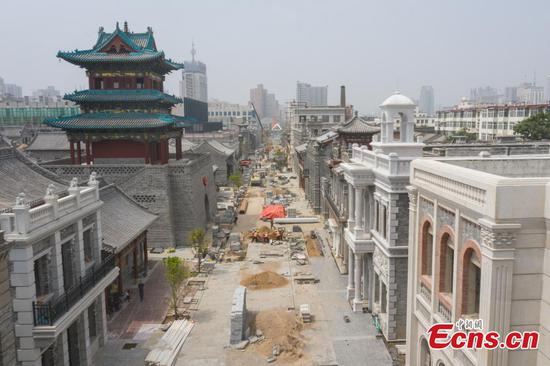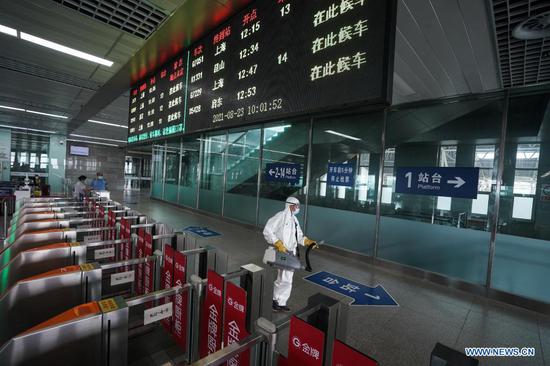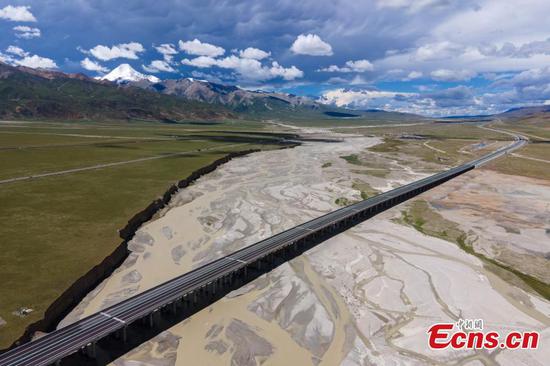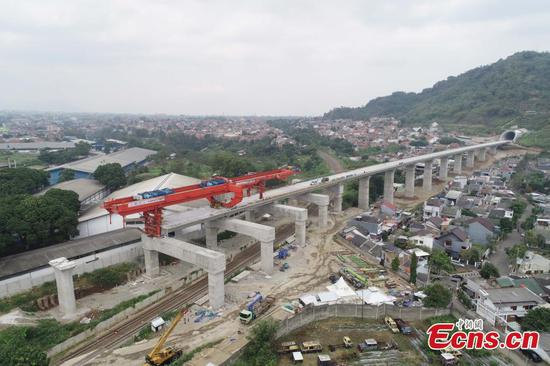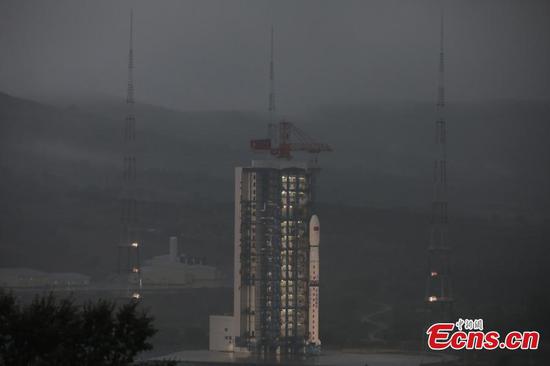U.S. Democrats-held House of Representatives on Tuesday voted to advance a bipartisan 1-trillion-U.S.-dollar infrastructure bill and approve a 3.5-trillion-dollar budget resolution, breaking the stalemate on intra-party disagreement over the chamber's legislative priority.
In a 220-212 party line vote, the lower chamber adopted a measure that would allow Democrats to write and approve the 3.5-trillion-dollar social spending package without Republican support, while clearing the path for a final vote of the Senate-passed infrastructure plan.
The measure also requires the House to vote on the infrastructure bill by Sept. 27, which is an intra-party compromise after a small group of centrist Democrats pushed Speaker Nancy Pelosi, the top Democrat in the chamber, to take up the bipartisan infrastructure plan before the Democrats-only budget resolution.
Pelosi has been pushing to pass the infrastructure bill and the social spending package at the same time, which has prompted criticism from Republicans and even some of her colleagues.
Nine moderates, led by Representative Josh Gottheimer of New Jersey, opposed Pelosi's plan to vote on Monday on a related measure, leading to hours of negotiations within the party.
In a Washington Post opinion published Sunday, the nine House Democrats urged the party to "do infrastructure first."
"We are firmly opposed to holding the president's infrastructure legislation hostage to reconciliation, risking its passage and the bipartisan support behind it," they said.
"We can pass the infrastructure measure now, and then quickly consider reconciliation and the policies from climate to health care to universal pre-K (pre-kindergarten education) that we believe are critical," they added.
Earlier this month, the Senate approved a long-awaited bipartisan infrastructure bill, which includes 550 billion dollars in new spending on infrastructure projects.
Along with the infrastructure bill, Democratic leaders have been seeking to advance the 3.5-trillion-dollar spending plan using the budget reconciliation process, which only requires a simple majority to pass the legislation, and would allow Democrats to enact most of President Joe Biden's social-spending agenda without Republican support. The budget plan focuses on childcare, education, health care and climate policy.
Democrats have argued that the budget plan will lower costs for Americans, cut taxes for U.S. families, and create jobs while tackling the climate crisis, claiming it would be paid for by the wealthy and corporations "paying their fair share."
Republicans, however, repeatedly lashed out at the massive spending plan, warning that the tax hike would hurt U.S. businesses and families. They say the high price tag would exacerbate inflation and push up the already ballooning debt.
With the Senate split 50-50, Democrats must keep moderates -- who could oppose elements of the agenda -- on their side, and allow Vice President Kamala Harris to cast the deciding vote.
Senator Kyrsten Sinema of Arizona, the top Democratic negotiator for the infrastructure bill, has repeatedly raised concerns about the potential cost of the package and the tax hikes proposed to pay for it.
Outside the Capitol, budget watchers are also voicing concerns. Maya MacGuineas, president of the Committee for a Responsible Federal Budget, a U.S. watchdog group, said in a statement Monday that the Senate budget resolution "should be a non-starter" in the House.
"It allows for 1.75 trillion dollars of direct new borrowing at a time when debt is already headed to record levels. That kind of borrowing made sense during the recession and pandemic, but it would be irresponsible and harmful going forward," MacGuineas said.
She added that before the House begins consideration of trillions of new spending and tax breaks, it should work to ensure the bipartisan infrastructure bill is fully paid for, urging lawmakers to identify additional revenue and spending reductions.
In a statement Tuesday, Pelosi said she is committed to passing the bipartisan infrastructure bill by Sept. 27.
In her House floor speech, Pelosi said the 3.5-trillion-dollar Build Back Better agenda would help build "the human infrastructure" of America.
"Now, it remains for to us work together -- work with the Senate to write a bill that preserves the privilege of 51 votes in the Senate," she said. "We must work together to do that in a way that passes the House and passes the Senate, and we must do so expeditiously."













